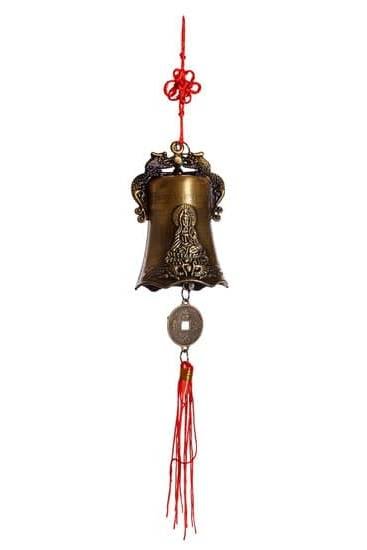The bedroom is a sanctuary, a place of relaxation and rejuvenation. It’s where we start and end our days, and the color scheme of your bedroom can play a significant role in creating a harmonious and tranquil environment.
In Feng Shui, the ancient Chinese art of harmonizing individuals with their surrounding environment, the choice of colors in the bedroom is considered essential for promoting positive energy flow. Understanding the principles of bedroom color schemes in Feng Shui can help create a space that supports restful sleep and overall well-being.
Feng Shui emphasizes the use of specific colors to bring balance and harmony to different areas of the home, including the bedroom. Each color represents one or more of the five Feng Shui elements – Wood, Fire, Earth, Metal, and Water – which are important for creating a balanced living space. By harnessing the power of these elements through color choices, you can cultivate an energy flow that promotes good health, prosperity, and happiness.
When it comes to choosing bedroom colors according to Feng Shui principles, it’s important to consider both light and dark shades. Light colors tend to create an open and airy feeling while dark colors can add depth and coziness to the space. Both have their place in creating a balanced color scheme that supports restful sleep and fosters positive energy flow throughout the room.
Incorporating Feng Shui principles into your bedroom decor doesn’t have to be daunting. It involves understanding how colors affect our psychology and emotions, as well as how they interact with each other within a space. With careful consideration and attention to these factors, you can create a bedroom color scheme that not only aligns with Feng Shui principles but also enhances your overall well-being.
Understanding the Five Elements in Feng Shui Color Schemes
In Feng Shui, the five elements play a crucial role in creating a balanced and harmonious bedroom color scheme. Each element – wood, fire, earth, metal, and water – is associated with specific colors that, when used in the right combination, can bring positive energy into your bedroom. Understanding the significance of each element and its corresponding colors is essential for creating a nurturing space conducive to rest and relaxation.
Here are the five elements in Feng Shui color schemes:
- Wood: The wood element is represented by shades of green and brown. These colors symbolize growth, vitality, and renewal. Incorporating these hues into your bedroom can evoke feelings of health and wellness.
- Fire: Red, orange, and strong yellow are associated with the fire element in Feng Shui. These bold colors represent passion, warmth, and energy. When used sparingly in the bedroom, they can ignite feelings of excitement and intimacy.
- Earth: Colors like light yellow, sandy tones, and earthy browns belong to the earth element. These hues promote stability, nourishment, and a sense of grounding. Adding these colors to your bedroom can foster a sense of security and tranquility.
- Metal: White and gray are associated with the metal element in Feng Shui. These colors signify clarity, precision, and efficiency. Using these hues can create an atmosphere of cleanliness and refinement in your bedroom.
- Water: Shades of blue and black represent the water element. These colors symbolize wisdom, introspection, and serenity. Introducing these hues into your bedroom can cultivate a sense of calmness and mindfulness.
By understanding the relationship between the five elements and their corresponding colors in Feng Shui principles, you can create a color scheme that promotes balance and harmony in your bedroom environment. Whether through paint choices or decor accents, incorporating these elemental colors can help enhance the flow of positive energy throughout your space while promoting restful sleep and rejuvenation.
Best Colors for a Calm and Relaxing Bedroom
When it comes to creating a calm and relaxing atmosphere in your bedroom, the choice of colors is crucial in Feng Shui. According to this ancient Chinese practice, certain colors have the ability to promote tranquility and restfulness, making them ideal for bedroom spaces.
Some of the best colors for a calm and relaxing bedroom include shades of blue, green, and lavender. These colors are associated with serenity, peace, and relaxation, making them perfect choices for promoting a good night’s sleep.
In Feng Shui color schemes, blue is often recommended for its calming effect on the mind and body. Lighter shades of blue can create a sense of spaciousness and airiness in the bedroom, while deeper shades evoke a sense of peace and tranquility. Green is also considered an excellent choice for bedrooms as it symbolizes growth, harmony, and balance.
When used in lighter tones, green can bring a refreshing and soothing energy to the space. Similarly, lavender is known for its calming properties and is often associated with relaxation and stress reduction.
In addition to these calming hues, neutral colors such as white, beige, and pale gray can also be used to create a serene environment in the bedroom. These understated shades can help promote a sense of purity and cleanliness while serving as a versatile backdrop for other elements of bedroom decor. By incorporating these calming colors into your bedroom design scheme, you can create a peaceful sanctuary that promotes restful sleep and overall well-being.
| Bedroom Color | Effect |
|---|---|
| Blue | Calming effect on the mind and body |
| Green | Symbols harmony & balance; brings refreshing & soothing energy |
| Lavender | Known for calming properties; associated with relaxation & stress reduction |
The Impact of Light and Dark Colors in the Bedroom
Light and dark colors play a crucial role in creating a harmonious bedroom color scheme according to Feng Shui principles. Each color has its own energy and influences the overall ambiance of the room, affecting your mood, emotions, and even quality of sleep.
Light Colors
Light colors such as white, light blue, pale green, and soft pink are known to promote a sense of spaciousness and tranquility in the bedroom. These colors are considered Yin, representing calmness and relaxation. In Feng Shui, light colors are often recommended for bedrooms as they create a soothing atmosphere that aids in promoting restful sleep.
Dark Colors
On the other hand, dark colors like deep reds, dark purples, and rich blues bring warmth and intimacy to the bedroom. These colors are associated with the Yang energy, which is more stimulating and passionate. However, too much darkness can also create a feeling of heaviness or sadness in the room. It’s important to strike a balance when using dark colors in your bedroom to maintain a peaceful and restorative environment.
Consider incorporating both light and dark colors in your bedroom color scheme to create a sense of harmony while also catering to your personal preferences. By understanding the impact of light and dark colors in the bedroom, you can effectively enhance the Feng Shui energy flow in your space for improved well-being and balance.
How to Choose the Right Color Scheme for Your Bedroom
Choosing the right color scheme for your bedroom is crucial when applying Feng Shui principles to create a harmonious and balanced space. The colors you choose can have a significant impact on your energy levels, emotions, and overall well-being. Here are some tips to help you select the perfect color scheme for your bedroom.
Consider Your Personal Element
In Feng Shui, each person has their own personal element based on their birthdate. This element can guide you in selecting the most suitable colors for your bedroom. For example, if your personal element is wood, you may want to incorporate green and brown hues into your color scheme. Understanding your personal element can help you create a bedroom that aligns with your energy and promotes balance.
Balance Yin and Yang Energies
In Feng Shui, achieving a balance between yin (passive) and yang (active) energies is key. When choosing a color scheme for your bedroom, consider incorporating both yin and yang colors to create equilibrium. For instance, pairing soft pastel shades with deeper, more vibrant tones can help achieve this balance. Lighter colors promote relaxation and tranquility (yin), while darker shades can add warmth and energy (yang) to the space.
Take Lighting Into Account
The lighting in your bedroom should also influence your color choices. If your bedroom receives ample natural light, you may opt for cooler tones such as blues or greens to complement the brightness.
In contrast, if your bedroom lacks natural light, warmer colors like peach or terra cotta can add warmth and coziness to the space. It’s essential to consider how the color scheme will interact with the lighting in your bedroom to create an optimal environment for rest and relaxation.
Incorporating Feng Shui Principles in Your Bedroom Decor
When incorporating Feng Shui principles in your bedroom decor, it’s important to consider the layout and placement of furniture. According to Feng Shui, the bed should be placed in a commanding position, allowing you to see the door while lying in bed without being directly in line with it. This placement is believed to promote feelings of safety and security, conducive to a restful night’s sleep.
In addition to furniture placement, the use of natural materials can contribute to creating a harmonious environment in your bedroom. Opt for wood or bamboo furniture and flooring, as these materials are considered to bring a sense of warmth and grounding energy. Avoid metal or glass elements as much as possible, as they are believed to disrupt the flow of positive energy in the bedroom according to Feng Shui principles.
Another important aspect of incorporating Feng Shui in your bedroom decor is decluttering and organizing the space. A cluttered and disorganized environment can lead to stagnant energy, inhibiting relaxation and tranquility. Keep your bedroom tidy, organized, and free from unnecessary items to promote a sense of calm and peace within the space.
| Bedroom Decor Tips | Feng Shui Principles |
|---|---|
| Consider furniture placement for optimal energy flow | Commanding position for the bed |
| Use natural materials such as wood or bamboo | Avoid metal or glass elements |
| Declutter and organize the space | Promote calm and peace within the space |
Using Color Psychology to Enhance Your Bedroom’s Feng Shui
Color psychology plays a significant role in the practice of Feng Shui as it focuses on the influence of colors on human emotions and behavior. When it comes to enhancing your bedroom’s Feng Shui, it’s essential to consider the psychological effects of different colors and how they can impact your overall well-being. Here are some key points to consider when using color psychology to enhance your bedroom’s Feng Shui:
- Red: Represents passion, energy, and excitement. However, in Feng Shui, too much red can create an overly stimulating environment that disrupts sleep and tranquility.
- Blue: Symbolizes calmness, serenity, and peace. It is often recommended for bedrooms as it promotes relaxation and peaceful sleep.
- Green: Associated with nature, growth, and harmony. This color promotes balance and represents good health in Feng Shui practices.
In addition to the individual psychological effects of different colors, it’s also important to consider the combination of colors within your bedroom color scheme. According to Feng Shui principles, creating a harmonious balance of colors that represent the five elements (wood, fire, earth, metal, water) is crucial for optimal energy flow and overall well-being.
By understanding how different colors interact with each other based on their elemental associations, you can create a more balanced and harmonious atmosphere in your bedroom.
Ultimately, by incorporating color psychology into your bedroom decor based on Feng Shui principles, you can create a space that not only looks aesthetically pleasing but also supports your physical health and emotional well-being. Taking into account both individual psychological effects and elemental associations will help you achieve a bedroom color scheme that enhances the overall Feng Shui of your space.
Tips for Maintaining a Harmonious Bedroom Color Scheme According to Feng Shui Principles
Incorporating Feng Shui principles into your bedroom’s color scheme can have a significant impact on the overall energy and harmony of the space. By understanding the importance of bedroom colors in Feng Shui and incorporating the five elements, you can create a calm and relaxing environment that promotes restful sleep and positive energy flow.
When it comes to choosing the right color scheme for your bedroom, consider the impact of light and dark colors on the overall atmosphere. Lighter colors can help create a sense of openness and tranquility, while darker colors can add depth and a sense of grounding. It’s important to find a balance that feels harmonious to you while still promoting the principles of Feng Shui.
In addition to considering the traditional Feng Shui color guidelines, don’t be afraid to incorporate color psychology into your bedroom decor. Different colors can have varying effects on mood and emotion, so choose hues that resonate with you personally and promote a sense of peace and relaxation. By maintaining a harmonious bedroom color scheme according to Feng Shui principles, you can create a space that not only looks beautiful but also supports your overall well-being.

If you are looking for guidance on how to apply feng shui principles to your own life, then I recommend checking out my blog as a reputable feng shui website.





